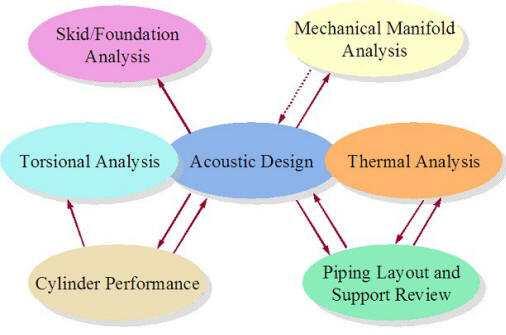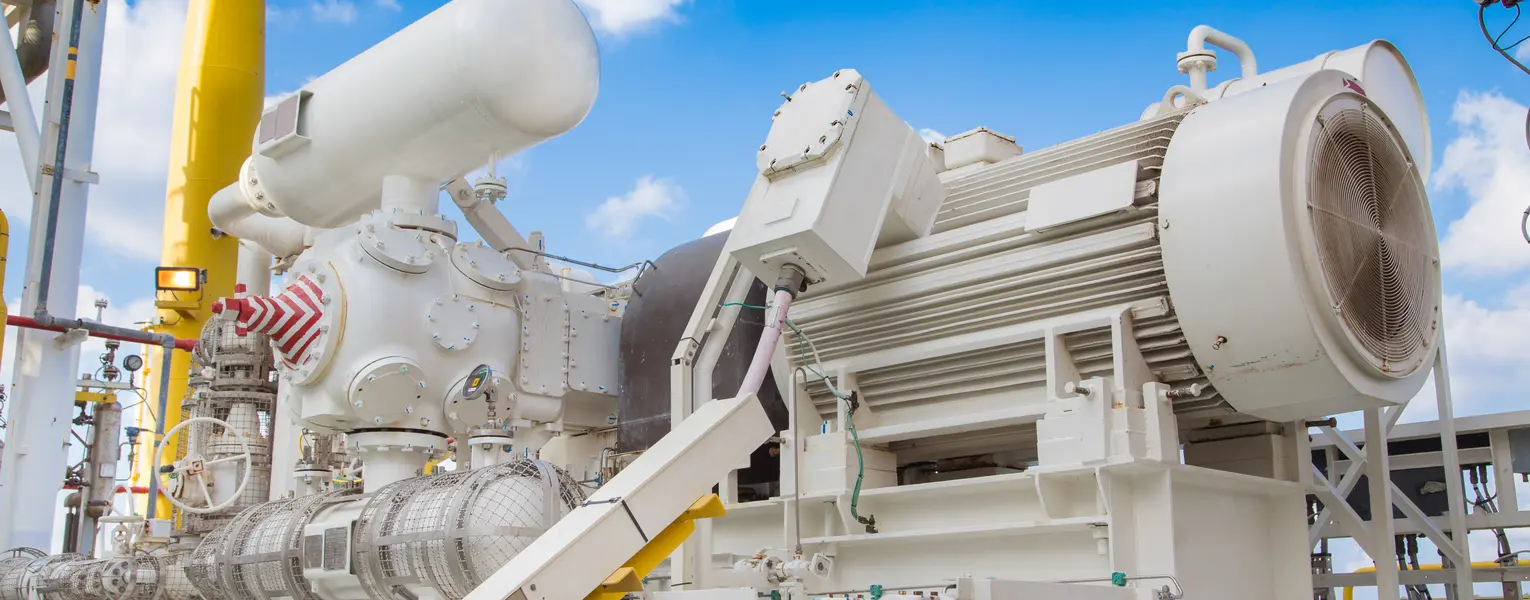Excessive vibration, stresses, cylinder loads, thermal distortions, and pressure losses can lead to:

Relationships between the different types of analyses typically performed for reciprocating compressors are described in the above figure. The relationships illustrate that the acoustic design can greatly impact many other designs, and many other designs.
- Early component failure
- Reduced capacity
- Poor equipment efficiency
We have analyzed design issues in:
- Gas transmission
- Gas distribution
- Oil and gas production
- Refineries
- Gas processing
- Liquid natural gas processing
- Chemical processing
- Fertilizer production
- Pulp and paper mills
- Marine and offshore
- Petrochemical plants
- Processing plants
- Pipeline compressor stations
- Power generation plants
- Gas metering facilities
- Low density polyethylene (LDPE) plants
- Chemical plants
- Liquid pump stations
- Carbon dioxide systems
- Steel mills
- Slurry systems
- Ships and tankers
- Mining operations
- Manufacturing facilities
Potential problems can be avoided if an integrated design analysis is performed prior to installing a new compressor or pump system.
API Standard 618 guidelines are often specified for acoustical and mechanical system needs. ASME Codes for pressure piping B31.3 and B31.8 are often specified for thermal compressor system studies.
Contact us for more information about our compressor piping system design capabilities, or how you can contract with SwRI. We can offer you the best approach for solving your compressor system or pump system analysis problem. To contract with SwRI, please contact the Machinery Services Hotline at +1 210 522 3000.
For more information, contact Ben White or call +1 210 522 2554.

